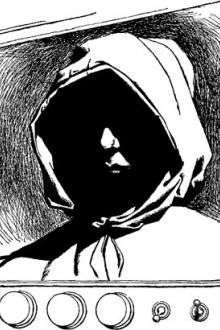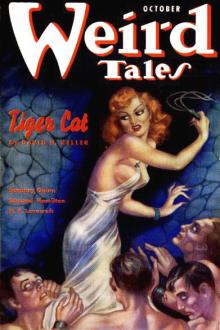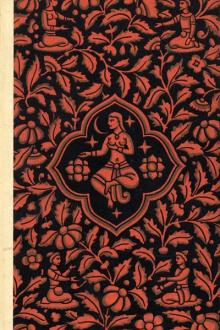Genre Short Story. Page - 19

over her account. The last check but one paid her bill atLausanne, but it was a large one and probably left her with cashin hand. Only one check has been drawn since."
"To whom, and where?"
"To Miss Marie Devine. There is nothing to show where the checkwas drawn. It was cashed at the Credit Lyonnais at Montpellierless than three weeks ago. The sum was fifty pounds."
"And who is Miss Marie Devine?"
"That also I have been able to discover. Miss Marie Devine wasthe maid of Lady Frances Carfax. Why she should have paid herthis check we have not yet determined. I have no doubt, however,that your researches will soon clear the matter up."
"MY researches!"
"Hence the health-giving expedition to Lausanne. You know that Icannot possibly leave London while old Abrahams is in such mortalterror of his life. Besides, on general principles it is bestthat I should not leave the country. Scotland Yard feels lonelywithout me, and it causes an unhealthy excitement among thecriminal clas

out the air lock or loafing on the surface. You wouldn't believe how blue the waves could be. They tell me on Rustum you can't come down off the mountain tops."
"But we'd have the whole planet to ourselves," said Teresa Zeleny.
One with a gentle scholar's face answered: "That may be precisely the trouble, my dear. Three thousand of us, counting children, totally isolated from the human mainstream. Can we hope to build a civilization? Or even maintain one?"
"Your problem, pop," said the officer beside him dryly, "is that there are no medieval manuscripts on Rustum."
[Illustration]
"I admit it," said the scholar. "I thought it more important my children grow up able to use their minds. But if it turns out they can do so on Earth--How much chance will the first generations on Rustum have to sit down and really think, anyway?"
"Would there even be a next generation on Rustum?"
"One and a quarter gravities--I can feel it now."
"Synthetics, year after year of

nd and wife. We infantrymen must bring the child into the world when a victory is to be born. The artillery has only the pleasure, just like a man's part in love. It is not until after the child has been baptized that he comes strutting out proudly. Am I not right, Captain?" he asked, appealing to the cavalry officer. "You are an equestrian on foot now, too."
The captain boomed his assent. In his summary view, members of the Reichstag who refused to vote enough money for the military, Socialists, pacifists, all men, in brief, who lectured or wrote or spoke superfluous stuff and lived by their brains belonged in the same category as the Philosopher. They were all "bookworms."
"Yes, indeed," he said in his voice hoarse from shouting commands. "A philosopher like our friend here is just the right person for the artillery. Nothing to do but wait around on the top of a hill and look on. If only they don't shoot up our own men! It is easy enough to dispose of the fellows on the other side, in front of

The reference was clearly to a nonhuman species of incredible properties, not indigenous to Earth. A species, I hasten to point out, customarily masquerading as ordinary human beings. Their disguise, however, became transparent in the face of the following observations by the author. It was at once obvious the author knew everything. Knew everything--and was taking it in his stride. The line (and I tremble remembering it even now) read:
... his eyes slowly roved about the room.
Vague chills assailed me. I tried to picture the eyes. Did they roll like dimes? The passage indicated not; they seemed to move through the air, not over the surface. Rather rapidly, apparently. No one in the story was surprised. That's what tipped me off. No sign of amazement at such an outrageous thing. Later the matter was amplified.
... his eyes moved from person to person.
There it was in a nutshell. The eyes had clearly come apart from the rest of him and were on their own.

or a moment he glanced through them. Then he was on his feet again. He crossed the room to a wide rack against the wall. His heart began to beat heavily.
Newspapers--weeks on end. He took a roll of them over to the table and began to scan them quickly. The print was odd, the letters strange. Some of the words were unfamiliar.
He set the papers aside and searched farther. At last he found what he wanted. He carried the Cherrywood Gazette to the table and opened it to the first page. He found what he wanted:
PRISONER HANGS SELF
An unidentified man, held by the county sheriff's office for suspicion of criminal syndicalism, was found dead this morning, by--
He finished the item. It was vague, uninforming. He needed more. He carried the Gazette back to the racks and then, after a moment's hesitation, approached the librarian.
"More?" he asked. "More papers. Old ones?"
She frowned. "How old? Which papers?"
"Months old. And--before."
"O

were soon convinced that he had made a most foolish marriage, and that henceforth his life must prove a failure. On the other hand, Madame Heurtebise appeared to us, after two years of married life, exactly the same as we had beheld her in the vestry on her wedding day. She wore the same calm and simpering smile, she had as much as ever the air of a shopwoman in her Sunday clothes, only she had gained self-possession. She talked now. In the midst of artistic discussions into which Heurtebise passionately threw himself, with arbitrary assertions, brutal contempt, or blind enthusiasm, the false and honeyed voice of his wife would suddenly make irruption, forcing him to listen to some idle reasoning or foolish observation invariably outside of the subject of discussion. Embarrassed and worried, he would cast us an imploring glance, and strive to resume the interrupted conversation. Then at last, wearied out by her familiar and constant contradiction, by the silliness of her birdlike brain, inflated and empty as

l, low-storied house, of which the ground-floor was occupied by the proprietor of a dram-shop, who stood smoking in his doorway, next to the entrance-passage. Lupin asked if Mr. Hargrove was at home.
"Mr. Hargrove went out about half-an-hour ago," said the publican. "He seemed very much excited and took a taxi-cab, a thing he doesn't often do."
"And you don't know...."
"Where he was going? Well, there's no secret about it He shouted it loud enough! 'Prefecture of Police' is what he said to the driver...."
Lupin was himself just hailing a taxi, when he changed his mind; and I heard him mutter:
"What's the good? He's got too much start of us...."
He asked if any one called after Mr. Hargrove had gone.
"Yes, an old gentleman with a grey beard and spectacles. He went up to Mr. Hargrove's, rang the bell, and went away again."
"I am much obliged," said Lupin, touching his hat.
He walked away slowly without speaking to me, wearing a thoughtful air. There

but I felt real glad. I was afraid he might stay away and sulk. So long as he comes here and sulks I don't worry. But he is feeling badly enough, poor soul, and I'm really eaten up by remorse. He tried to outstay Mr. Sherman last night, but he didn't manage it. You never saw a more depressed-looking creature than he was as he hurried down the lane. Yes, he actually hurried."
The following Sunday evening Arnold Sherman walked to church with Theodora, and sat with her. When they came in Ludovic Speed suddenly stood up in his pew under the gallery. He sat down again at once, but everybody in view had seen him, and that night folks in all the length and breadth of Grafton River discussed the dramatic occurrence with keen enjoyment.
"Yes, he jumped right up as if he was pulled on his feet, while the minister was reading the chapter," said his cousin, Lorella Speed, who had been in church, to her sister, who had not. "His face was as white as a sheet, and his eyes were just glaring out of his head. I

from a sturdy infant had become a sickly, spindling lad. In this year the servant Mehitabel died, and the other servant, Preserved Smith, left without coherent explanation--or at least, with only some wild tales and a complaint that he disliked the smell of the place. For a time Mercy could secure no more help, since the seven deaths and case of madness, all occurring within five years' space, had begun to set in motion the body of fireside rumor which later became so bizarre. Ultimately, however, she obtained new servants from out of town; Ann White, a morose woman from that part of North Kingstown now set off as the township of Exeter, and a capable Boston man named Zenas Low.
* * * * *
It was Ann White who first gave definite shape to the sinister idle talk. Mercy should have known better than to hire anyone from the Nooseneck Hill country, for that remote bit of backwoods was then, as now, a seat of the most uncomfortable superstitions. As lately as 1892 an Exeter community exhumed a dead bo

he youth kissed the hand of his sire who said, "O my son, were I sure that thou wouldest deal justly by Anis al-Jalis, I would give her to thee." "O my father, what justice am I to do to her?" "I enjoin thee, O my son, not to take another wife or concubine to share with her, nor sell her." "O my father! I swear to thee that verily I will not do her injustice in either way." Having sworn to that effect Nur al-Din went in to the damsel and abode with her a whole year, whilst Allah Almighty caused the King to forget the matter of the maiden; and Al-Mu'ín, though the affair came to his ears, dared not divulge it by reason of the high favour in which his rival stood with the Sultan. At the end of the year Al-Fazl went one day to the public baths; and, as he came out whilst he was still sweating, the air struck him[FN20] and he caught a cold which turned to a fever; then he took to his bed. His malady gained ground and restlessness was longsome upon him and weakness bound him like a chain; so he called out,